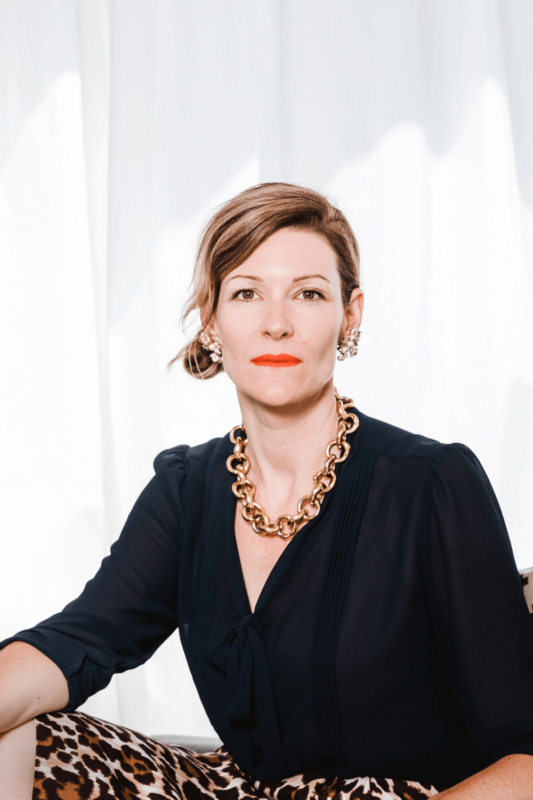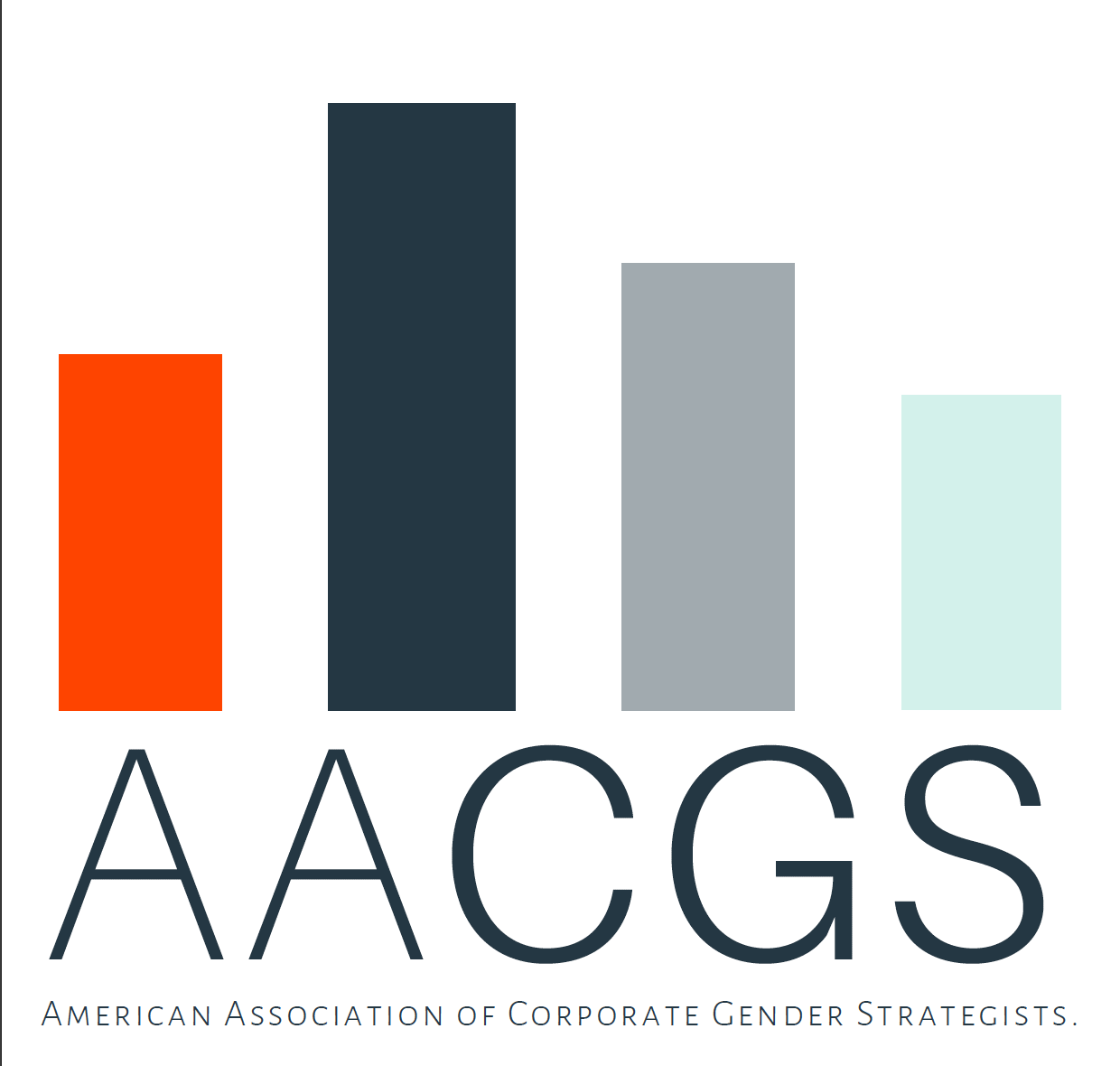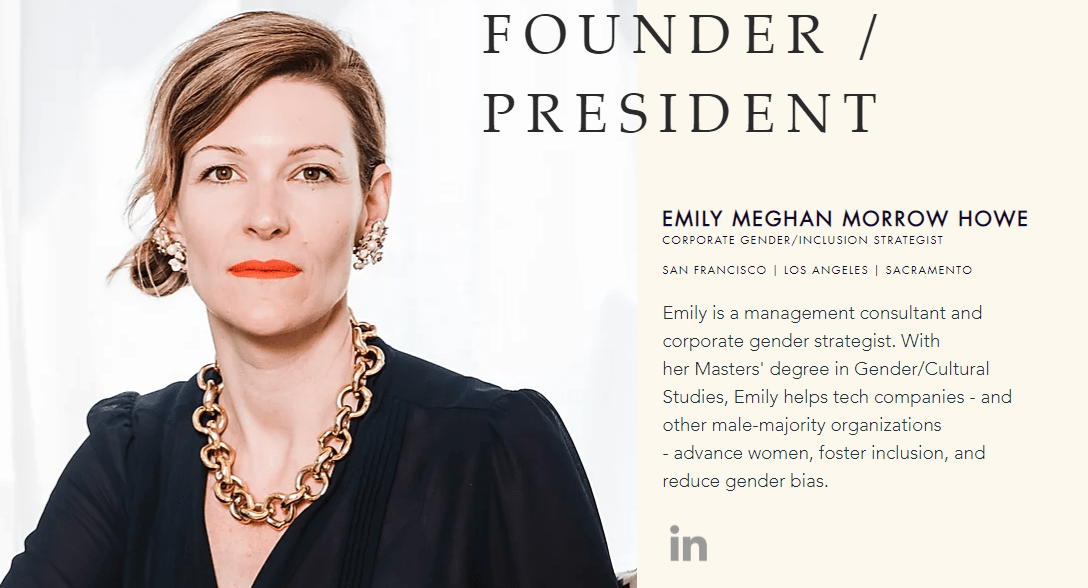Helping companies to make real progress on recruiting, retention, culture, and the advancement of women.
The American Association of Corporate Gender Strategists(AACGS) was founded in 2018 to address a growing interest in working in the field, and to solidify a standard, research-based approach to solving work/gender issues. It's for emerging corporate/gender consultants as well as everyone trying to do related work in the corporate space.
Our editor Lizet Esquivel talked to Emily Meghan Morrow, founder and president of AACGS, to discuss a little bit about gender equality. Emily is a Gender/Equity advisor for Silicon Valley tech companies and other male-majority industries. She does this work in tandem with running the organization the American Association of Corporate Gender Strategists corporategender.org
"Gender-inclusive CEOs enforce an enterprise-wide approach (with consequences such as pay reductions for non-compliance) to solving any inequities or gaps in opportunity - instead of just letting their managers and supervisors decide if they want to work towards inclusion"
Where the idea of the founding of AACGS came from? what services does it offer?
I started this professional organization for folks interested in consulting on gender/work because, after becoming a visible thought leader in the field, I was getting multiple requests per week to coach people on getting into the field. And, these good-hearted beginners needed a framework and strong methodology based on the research on women/workplace and individual company data. (Without which, companies spend money on efforts that produce few outcomes and also burn them out on diversity/women's initiatives.)
Corporategender.org provides:
- Professional development for emerging gender/work consultants
- Consultant-matching for companies that need help
- Leadership coaching for executives in male-majority spaces
What are the factors that foster gender bias in the workplace?
Companies that hire, advance, and retain women at the same rate as men do so by being vigilant about what's happening in recruiting, promotions, and company culture. To do this, they closely monitor their company data to see where they have inequities. These model companies implement enterprise-wide solutions (instead of just taking steps if a manager cares about it); and, they have real, financially-tied consequences for managers who comply and don't.
Talking about the companies what should the CEOs do for promoting a culture of gender equality?
Gender inclusive CEOs constantly review their company data to see how women (of all Colors) are faring in recruiting, promotions, and company culture. CEOs who are leaders in this area speak publicly about the importance of reducing unconscious bias and the business benefits of race/gender diversity at all levels as well as the business drawbacks of having homogenous managerial teams and boardrooms. These model CEOs also enforce an enterprise-wide approach (with consequences such as pay reductions for non-compliance) to solving any inequities or gaps in opportunity - instead of just letting their managers and supervisors decide if they want to work towards inclusion.
Have you experimented the glass ceiling? if yes, what are the biggest challenges you have faced and how have you overcome them?
The glass ceiling gets a lot of press - and you can see its persistence in the data from the Senate to the Fortune 500 and venture capital.
But, what is much more widespread and harmful for many, many more women is "the broken rung" on the very first step up to management. In November 2019, the world's largest research study on women in the workplaces - from McKinsey & Co. and LeanIn.org (disclosure: which I'm involved in) - showed that for every 100 very early-career women promoted 130 of their male peers are. This means that ambitious very junior women are getting roadblocked out the very first opportunity for promotion. This is also deeply troubling because it unfairly lets one gender start their managerial climb much faster. This early-career gendered promotions gap happens well before most young workers have child-rearing responsibilities - and well before there is much to judge folks on aside from a couple of years of entry-level work.
Awareness is key to solving this issue; I help my client companies crunch the data so they can see if this is going on at their companies. Generally knowing their data and understanding how common these early-career biases is enough to help managers of all genders check their biases and make more balanced early-career decisions.





